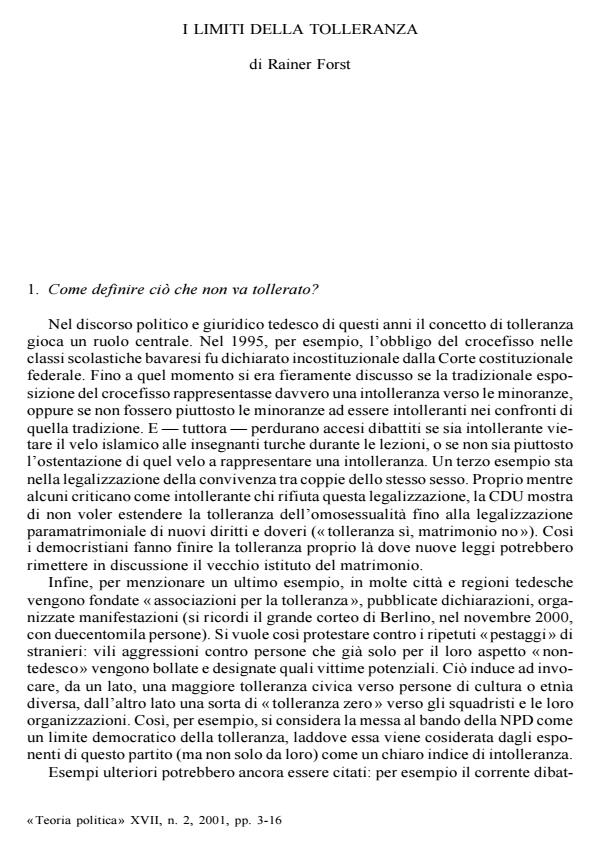I limiti della tolleranza
Journal title TEORIA POLITICA
Author/s Rainer Forst
Publishing Year 2001 Issue 2001/2
Language Italian Pages 14 P. File size 38 KB
DOI
DOI is like a bar code for intellectual property: to have more infomation
click here
Below, you can see the article first page
If you want to buy this article in PDF format, you can do it, following the instructions to buy download credits

FrancoAngeli is member of Publishers International Linking Association, Inc (PILA), a not-for-profit association which run the CrossRef service enabling links to and from online scholarly content.
Is it possible to distinguish in terms of law and democracy what is tolerable and what is not? On the basis of some German cases (the cross hanging in Bavarian schools, wearing the chador, marriage between omosexuals, xenofobic radicalism), the author claims that is necessary to link the concept of tolerance to a strong idea of justice. Tolerance acquires real contents only when it is filled with discourses and arguments which make reference to reciprocity and generality. In such a way communicative reason may set the borders which divide three different normative spheres: a) what we ethically share and approve, b) what we criticize and do not approve, but at the same time we accept and tolerate as vision (or practice) of the other, c) what we reject as morally not acceptable and not tolerable. Only a communicative and intersubjective reason which appeals to reason may escape, says the author, a paradoxical dialectics of a tolerance conceived in merely relativistic, rethorical and strategic terms. Any merely pragmatic and relativistic justification, in fact, would turn into a sort of paradoxical and arbitrary self-confutation (each party claims that the other is intolerant and consequently intolerable
Rainer Forst, I limiti della tolleranza in "TEORIA POLITICA" 2/2001, pp , DOI: